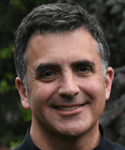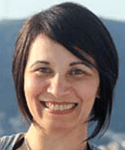The field of science communication doesn’t have any single, broadly accepted definition. This is because science communication is actually a collection of many different fields that have science as a common thread, the same way the life sciences—covering everything from biology to botany, ecology, genetics, physiology, virology and zoology— are a huge variety of disciplines that have the study of living organisms in common.
Learn MoreThis is the right idea at the right time.
SCI’s mission is lofty but necessarily so. There is a glaring need to create lateral links among scientists and their organizations.
In today’s world, information norms and practices seem to evolve by the hour. Not so much the information norms and practices inside science, however, which are still (with a few limited exceptions) firmly entrenched in the 17th Century. Scientists write mostly for journals very few people read. Most researchers don’t share their data effectively (and if they do, the data is rarely shared in a usable way). And the incentives for improving science communication are completely misaligned: Scientists get brownie points for writing obscure journal articles, not for figuring out ways to share their work more effectively and integrate it with other research in nearby fields. In short, communication inside science is treated like a burden, not an asset. As a result, science doesn’t discover as much as it might, and incalculable value is regularly left on the table, or abandoned altogether because research work is never even seen.
SCI believes that by improving this communication, we can build toward a new Renaissance era in science where the impact of science can begin to reach its full potential. The return on investment for this effort will be profound and wide ranging, including better science, more efficient research funding, faster discovery and innovation, and better science education and science policy.
To do this—to help reform the field of science communication and the culture of communication in science—SCI invents and manages science communication projects targeting different needs and opportunities for improvement in science. We also invent and manage projects bringing the field of science communication closer together so we can learn more by working together, plus projects to improve equitable access to science, and projects improving the ability of scientists everywhere to work together.
SCI’s largest such project to-date has been OSI, the Open Scholarship Initiative, which we launched in late 2014. The goal of OSI has been to improve research and society by making research information more visible and accessible. OSI’s approach to this challenge has been to bring together top leaders from all stakeholder groups around the world (over 450 leaders from 20 stakeholder groups and 30 countries are part of OSI), try to better understand the many perspectives involved, and from this understanding, work to build solutions that are inclusive, equitable, broad and sustainable. OSI has worked closely with (and received funding from) the United Nations in this process since 2015, and was an invited observer to the UN’s recent international agreement on open science. For more information, please visit the OSI website at osiglobal.org.
Going forward, SCI will also be prioritizing three projects with high-priority needs and impacts. The first is the open science work we pioneered with OSI. Our second high-priority project is to begin coordinating high-level global conversations regarding removing carbon dioxide from our atmosphere. SCI’s 2025 Carbon Dioxide Removal (CDR) conference will be the first major global conference dedicated to creating the necessary policy framework for this vital work. And our third high-priority project is to fund and develop a global Disinformation Awareness Training & Education program (DATE). This program will unite diverse experts and combine their insights into practical and effective tools, resources and networks to combat science disinformation.
 Glenn Hampson is the founder and executive director of the Science Communication Institute, and the founder and program director for SCI’s largest project, the Open Scholarship Initiative (OSI). In his previous roles over the last 30 years, Glenn has worked in senior research communications roles for the Fred Hutchinson Cancer Research Center and the University of Washington, and was also the founder and president of the Castle Pacific Publishing Company, and managing editor and webmaster for the World Bank Group’s International Finance Corporation. Glenn is a frequent international speaker on open science issues, and has written widely on science communication.
Glenn Hampson is the founder and executive director of the Science Communication Institute, and the founder and program director for SCI’s largest project, the Open Scholarship Initiative (OSI). In his previous roles over the last 30 years, Glenn has worked in senior research communications roles for the Fred Hutchinson Cancer Research Center and the University of Washington, and was also the founder and president of the Castle Pacific Publishing Company, and managing editor and webmaster for the World Bank Group’s International Finance Corporation. Glenn is a frequent international speaker on open science issues, and has written widely on science communication.
SCI is a 501(c)(3) nonprofit charity established in 2011 and incorporated in Washington State. Our center of operations is Seattle (we don’t maintain any physical office locations; our network operates virtually).
SCI receives funding for its projects from a variety of government, foundation, institutional, corporate and individual sponrors and donors (see our project sites for details, such as osiglobal.org). This project funding passes through SCI with no overhead charge. Funders do not influence our agenda nor do SCI’s opinions necessarily reflect the opinions of funders or their assigns (see our legal page for a dislaimer).
SCI’s legal documents and most recent federal tax filings are linked below. For more information, please see SCI’s Platinum-rated profile on GuideStar. For additional annual reports, please see the SCI website archives.
SCI’s board of directors has varied in size over the years between five and 15 members. Our board members represent a wide variety of research communication areas, and serve terms of two years minimum. We are honored to be working with these distinguished leaders on achieving our FY 2024-26 goals:
 Jason Steinhauer is the bestselling author of “History Disrupted,” examining how social media shapes what we know about the past. He is a Global Fellow at The Woodrow Wilson Center, a Senior Fellow at the Foreign Policy Research Institute, former founding director of the Lepage Center for History in the Public Interest, and a Presidential Counselor of the National WWII Museum. Jason has traveled extensively with the US Department of State to facilitate exchanges between government officials, scholars and students on the effects of the Internet and social media on public understanding of news, history and information.
Jason Steinhauer is the bestselling author of “History Disrupted,” examining how social media shapes what we know about the past. He is a Global Fellow at The Woodrow Wilson Center, a Senior Fellow at the Foreign Policy Research Institute, former founding director of the Lepage Center for History in the Public Interest, and a Presidential Counselor of the National WWII Museum. Jason has traveled extensively with the US Department of State to facilitate exchanges between government officials, scholars and students on the effects of the Internet and social media on public understanding of news, history and information.
 Sonia Vasconcelos is an associate professor at the Federal University of Rio de Janeiro, where she teaches science communication, research methodology, and research ethics and integrity. Sonia coordinates the university’s Professional Masters Program in Science Education, and Advisory Council for Research Ethics, and is a former member of the Research Integrity Committee of the Brazilian Council for Scientific and Technological Development. Sonia is also active in many other science communication related activities around the world.
Sonia Vasconcelos is an associate professor at the Federal University of Rio de Janeiro, where she teaches science communication, research methodology, and research ethics and integrity. Sonia coordinates the university’s Professional Masters Program in Science Education, and Advisory Council for Research Ethics, and is a former member of the Research Integrity Committee of the Brazilian Council for Scientific and Technological Development. Sonia is also active in many other science communication related activities around the world.
 Patrick Herron is a leading AI scientist with broad experience building innovative natural language processing models across a wide variety of industries. He is the author of several books on technology, scientometrics, and econometrics, and formerly a Senior Research Professor at Duke University, where he taught and conducted cross-disciplinary research on language models, breakthrough technology detection, and social network analysis.
Patrick Herron is a leading AI scientist with broad experience building innovative natural language processing models across a wide variety of industries. He is the author of several books on technology, scientometrics, and econometrics, and formerly a Senior Research Professor at Duke University, where he taught and conducted cross-disciplinary research on language models, breakthrough technology detection, and social network analysis.
 Liz Allen is a Nature and PLOS alum with over 30 years in academic publishing, Liz has deep experience developing and introducing novel open access business models. She has also led the launch of many science journals, magazines, events and digital products and services. Liz is a fellow at the UN SDG Publisher’s Compact and is on the board of nonprofit Phoenix Bioinformatics, which specializes in research data.
Liz Allen is a Nature and PLOS alum with over 30 years in academic publishing, Liz has deep experience developing and introducing novel open access business models. She has also led the launch of many science journals, magazines, events and digital products and services. Liz is a fellow at the UN SDG Publisher’s Compact and is on the board of nonprofit Phoenix Bioinformatics, which specializes in research data.
 Donald Samulack has been deeply involved in a wide range of science publishing management work for over 25 years. Formerly the President of US operations and Head of Global Stakeholder Engagement for Cactus Communications, Donald has been actively involved in supporting the publication needs of academic, non-profit, and commercial publishing communities, and raising the level of awareness and professionalism of good publication practices worldwide. Since early 2023, he has been serving as a consultant for Capital Media Group and other clients.
Donald Samulack has been deeply involved in a wide range of science publishing management work for over 25 years. Formerly the President of US operations and Head of Global Stakeholder Engagement for Cactus Communications, Donald has been actively involved in supporting the publication needs of academic, non-profit, and commercial publishing communities, and raising the level of awareness and professionalism of good publication practices worldwide. Since early 2023, he has been serving as a consultant for Capital Media Group and other clients.